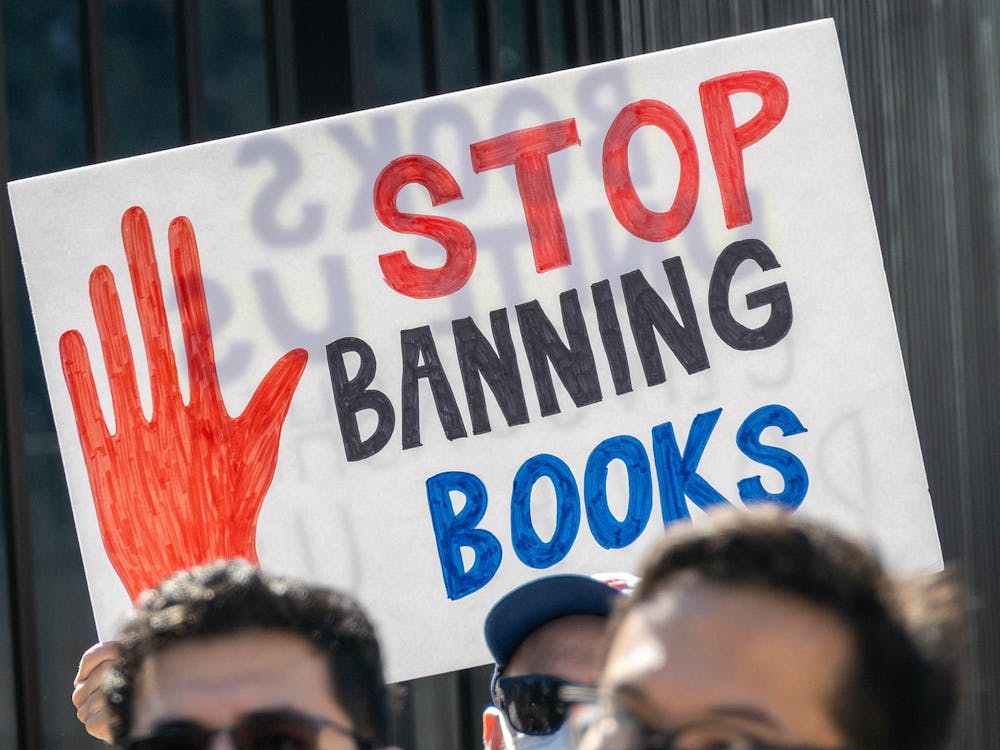By Rachel McDonald
Correspondent
A picture book about a father helping his daughter style her hair could never be banned, right? It can if the father and daughter in question are Black.
In the children’s picture book, “Hair Love,” by Matthew A. Cherry, a little girl struggles to style her natural curly hair. Her dad realizes what his daughter is experiencing and despite his doubts about his abilities, he immediately steps in to give his child a hand.
After some trial and error, and some help from a video, the pair manages to get the girl’s hair into a row of three cute buns on top of her head. The story concludes with the girl’s mother coming home and smiling at the results. The ending reveals how hairstyles can be a point of beauty, pride and connection for Black girls and women.
Parents and politicians have been pushing to have this book banned from schools. And no, I’m not leaving anything out in my summary of this story. There’s no violence, politics or call to action. Just a father who works to style his daughter's hair as she struggles. Yet, this book has been removed from classrooms and libraries, especially in areas that reject the inclusion of Critical Race Theory in schools.
To briefly summarize Critical Race Theory, it encompasses the idea that Western society inherently holds racial bias, as it was created by and for white people at the expense of people of color. Some parents and politicians have rejected the inclusion of Critical Race Theory in public schools for fear of creating “white guilt” in privileged children or reducing patriotism by bringing to light the deeply rooted flaws of the United States.
Regardless of where you stand on that issue, it’s clear that the Critical Race Theory controversy has gotten out of hand when “protecting white children” apparently includes covering up the fact that Black people exist.
In a thinly veiled disguise of protecting white children, book-banning advocates have begun removing any and all diverse books from school library shelves. In a hysteria as old as the country itself, groups are trying to preserve America’s whiteness at the expense of children from various backgrounds who deserve to learn about themselves and others.
Banning books that are meant to be relatable and uplifting to Black girls sends a clear and disturbing message that they are not welcome in their own schools. It also causes non-Black students to learn and perpetuate this prejudice.
The fuss these “book banners” are making over a picture book about a girl and her hair would be hilarious if the consequences weren’t so grim. Books are children’s windows and mirrors, and without this book, students are losing valuable insight into common cultural experiences.
If this isn’t proof that the recent surge in book banning is rooted in prejudice, I don’t know what is. Keeping children in a bubble doesn’t protect them; in fact, it actively harms the innocent children they are being “protected” from. What does help children is teaching them that there are people in the world who are different from them and that we can all coexist peacefully.
Books start conversations and provide glimpses into other experiences, expanding children’s worldviews. Any book can be valuable in the right context. Let’s stop trying to shelter children from reality and instead provide them with diverse books that teach them strength and compassion.







